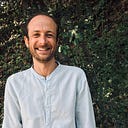Our Dual Nature and Destiny
Are we spirit, or matter? Are we eternal sparks of divine consciousness, or boiling cauldrons of instincts and emotions? As human beings, we are both. This dual nature gives rise to our greatest woes, inspiring us one moment, only to dash our inspirations against the rocks of fear and aggression the next. Simpler beings like plants and animals need only live out their instinctual lives to find fulfillment. As spiritual intelligence riding a human brain and body, we do not have it so easy: we long to fulfill both our instinctual and spiritual aspirations. Is there any hope for us in this life, or will we forever seesaw from one extreme to the next? Our hope lies in alchemically transmuting the raw material of our instincts, emotions, and traumas into fuel for our awakening. The friction of our dual nature creates the sparks of illumination.
The ancient Greeks believed that we each have a daimon– an inner guiding spirit that calls us toward our truest expression. The daimon calls to us continually but we do not necessarily answer the call, for to do so would entail risk. It may come quietly, as the “still, small voice” of our souls, or it may upend our lives through crisis. It may drag us into a depression, or inspire us with passion, block our path, or open the way. No matter how the daimon chooses to call us, it requires us to step out on a limb.
Fear is the single greatest impediment to living our true life. The threats of failure, rejection, loss, insecurity, death, or even unpleasant emotions (like fear itself) keeps us from making the necessary moves. Platitudes about fearlessness only make matters worse, as fear– the famous fight or flight response– sits at the base of our instinctual pyramid, often running our lives from below, far outside the field of our awareness. If we repress fear in an effort to appear fearless, it will poison whatever we touch. But just imagine the power we would possess if we could transmute the energy of fear into courage, love, or creativity. Before we can transmute our fear, we must fully acknowledge it and be prepared to keep acknowledging it whenever it may arise. Courage comes from acting in the full awareness of fear. It is the result of a conscious choice. Following the call of the daimon requires this kind of courage.
Whenever we look deeply into life and its meaning, we tangle ourselves up in the weedy subject of whether or not we are bound by fate or possess free will. No one has the final word on this subject, but here is one perspective: free will, which is the ability to make conscious choices, allows us to transform oppressive fate into destiny. Destiny is our birthright and greatest gift: the life we came to live. The more we live according to our raw instincts and habits, whether catering to them or struggling against them, the more fate binds us. The more we heed the call of our souls, choosing to follow it in spite of our fear and indolence, the more we awaken to our destiny. Then strange things begin to happen: synchronicities, serendipities, and life-changing encounters pile up. Life takes on a surreal, orchestrated quality as we discover our personal myth. Like the hero on the Hero’s Journey, we receive magical aid. But, also like the hero, further trials await us, testing our newly acquired consciousness and courage at every turn.
The alchemical path is one of personal responsibility, self-mastery, and inner vision. Our destiny is our own business. This is a hard pill to swallow, but the most liberating of medicines. No one else can wake us up or take the blame for the challenges we face. When we realize that we alone carry our destiny, then we can get to the work of self-mastery. Self-mastery works in two directions, both crucial to the processes of transmutation and awakening: top-down mental mastery, and bottom-up emotional/ energetic mastery. Mental mastery involves identifying, releasing, and rewriting the stories that shape our personal reality, while emotional/ energetic mastery involves rewiring our inner programming to become less reactive, more sensitive, and more secure, so we may better respond to life situations. Through both the top-down and bottom-up approaches, we develop our single greatest ally in consciousness: the Inner Observer. The Observer is aware of awareness itself; it remains alert and unperturbed in any situation, unaffected by the emotional storms and personal identifications of ordinary life. When we can rest in the Observer state, aware of yet unaffected by the conflicting opposites within, our vision becomes clear and we finally become capable of making conscious choices.
